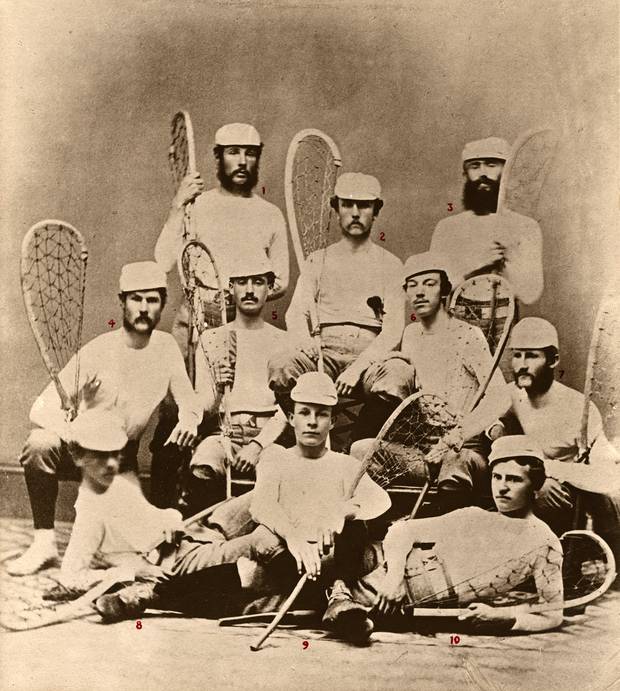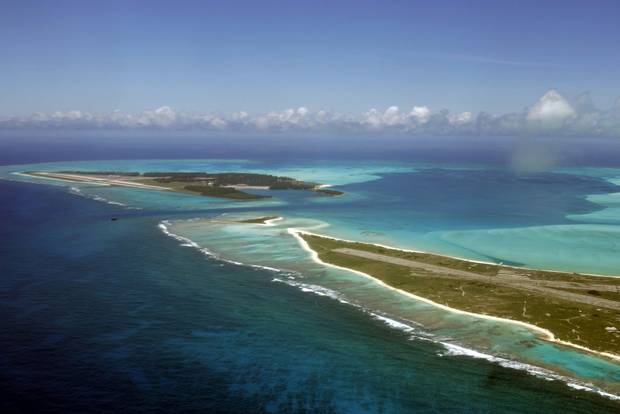The Globe warns of more railway corruption

An Intercolonial outing!: along the shores of the lower St. Lawrence and through the provinces by the sea. Preface signed and dated: W. Kilby Reynolds, May, 1893.
Toronto Public Library
Aug. 7, 1867 – The British North America Act specifically called for the creation of an Intercolonial railway to link Quebec and Ontario with New Brunswick and Nova Scotia. But The Globe was worried the corruption that had enveloped the creation of the Grand Trunk Railway in the 1850s would seep into the Intercolonial's development. In a front-page "political retrospective," it outlined the kickbacks and inside deals that John A. Macdonald and his cronies arranged when the Grand Trunk network was built in Ontario and Quebec. In an editorial in the same issue, it asked each reader to "decide for himself whether it is wise to entrust the same men with the task of constructing the Intercolonial Railway." In the upcoming elections, The Globe said, voters should "support candidates who have proved themselves to be in the past devoted to the interests of the people, and careful guardians of the public purse." – Richard Blackwell
Crowds flock to lacrosse exhibition game

Toronto Lacrosse Club, c. 1867. Figures keyed in red ink from 1-10, referring to key on JRR printed caption. KEY: 1) W. D. Otter; 2) George Massey; 3) W. G. German; 4) Henry L. Henderson; 5) Wm. Grand; 6) Geo. H. Leslie; 7) John Henderson; 8) John Massey; 9 C.E. Robinson; 10) Charles Allen.
Toronto Public Library
Aug. 14, 1867 – In 1867, lacrosse was taking off as an organized sport in Canada, grabbing the attention of players and spectators. The game had been part of the culture and spiritual life of Indigenous nations in North America for centuries, and it was adopted by colonial settlers. In the mid-1860s, a Montreal dentist, William George Beers, gave the sport a boost by setting out standardized rules for the modern game, including dimensions for the field and the construction of the stick and ball. The Globe reported on an Aug. 14 exhibition game at Queen's Park in Toronto, saying that "seldom has there been a larger or more enthusiastic assemblage of citizens to witness any outdoor sport." The recently formed Toronto Lacrosse Club was about to face competition from another new club, the paper noted, reflecting "the growing interest and popularity which this 'king of field games' is obtaining." – Richard Blackwell
Election elicits charges of 'fake news'
![THE LEADER. 1852-1878 [newspaper] -- Published by James Beaty, and edited by Charles Lindsey, formerly assistant editor of the Examiner, the Leader in 1852 was the fifth Reform paper in Toronto. It supported the Hincksite Liberals, and after the Liberal-Conservative coalition of 1854, it became a moderate Conservative paper. The semi- weekly edition began on July 1, 1852, the weekly on July 7, 1852, and the daily on July 11, 1853. The semi-weekly ceased publication in 1864, the daily and weekly in 1878.](https://www.theglobeandmail.com/ece-images/393/incoming/article36157251.ece/BINARY/w620/August3.jpg)
THE LEADER. 1852-1878 [newspaper] – Published by James Beaty, and edited by Charles Lindsey, formerly assistant editor of the Examiner, the Leader in 1852 was the fifth Reform paper in Toronto. It supported the Hincksite Liberals, and after the Liberal-Conservative coalition of 1854, it became a moderate Conservative paper. The semi- weekly edition began on July 1, 1852, the weekly on July 7, 1852, and the daily on July 11, 1853. The semi-weekly ceased publication in 1864, the daily and weekly in 1878.
Aug. 21, 1867 – In late August, 1867, the first federal election after Confederation was well under way, with polling taking place, depending on the riding, from early August through to late September. Newspaper coverage was comprehensive and highly partisan. The Globe – which supported the Reform Party and the candidacy of publisher (and Reform's unofficial leader) George Brown – accused a rival Toronto paper of concocting stories. The Leader, which backed the Conservative party, was "fabricating speeches for Mr. Brown which he never delivered, and articles attributed to The Globe which never appeared in its columns," The Globe reported. It cited a letter in The Leader that quoted from an old Globe story, noting that "a reference to our files shows that these extracts are sheer fabrications!" The Leader, according to The Globe, was resorting to "the grossest fraud and forgery" in its election coverage. – Richard Blackwell
The United States annexes Midway atoll

Hugh Gentry
Aug. 28, 1867 – On this day in 1867, the United States officially took possession of the tiny Midway Islands, the first of several Pacific islands the country would eventually acquire. Midway had actually been under informal U.S. control since 1859 under the Guano Islands Act, which allowed the United States to occupy uninhabited islands to harvest bird droppings for fertilizer and gunpowder. Midway, 2000 kilometres northwest of Hawaii, eventually became a communications and transport hub, including a stint as a refuelling point for Pan American Airways transpacific passenger flights. But its enduring legacy was as a military base, and it was the site of the crucial 1942 Battle of Midway that helped turn the tide of the Second World War against the Japanese. The U.S. Navy finally abandoned the islands in the 1990s, a few years after the atoll became a wildlife refuge. Midway is now administered by the U.S. Fish and Wildlife Service. – Richard Blackwell



